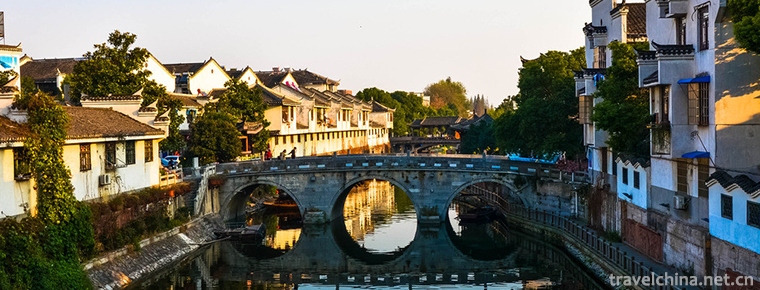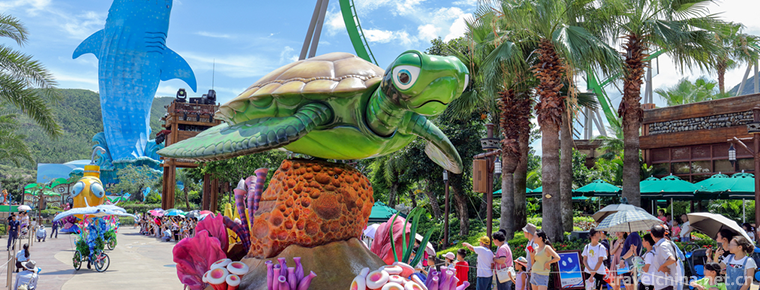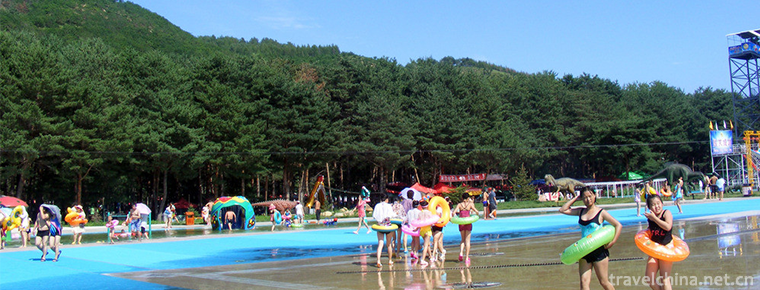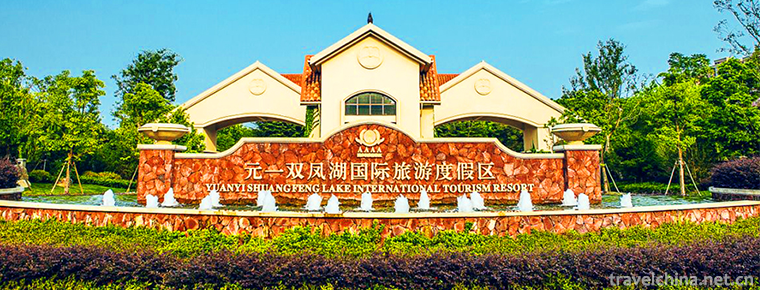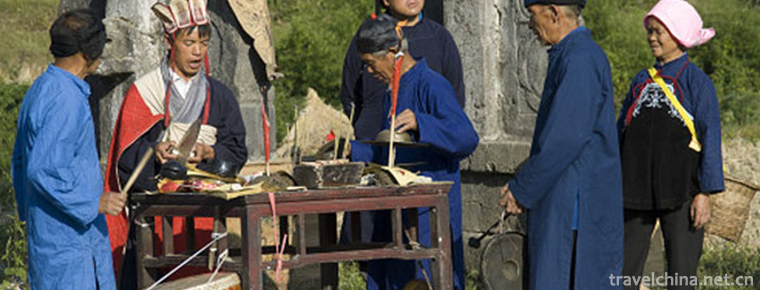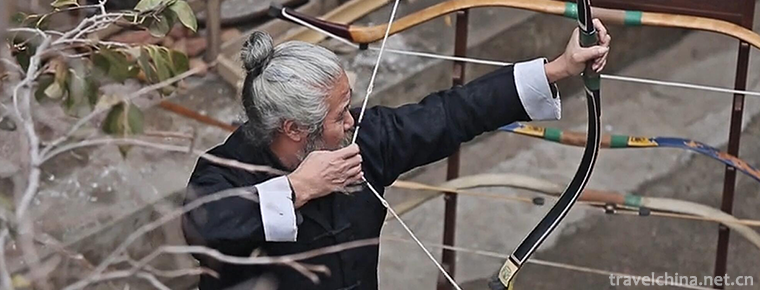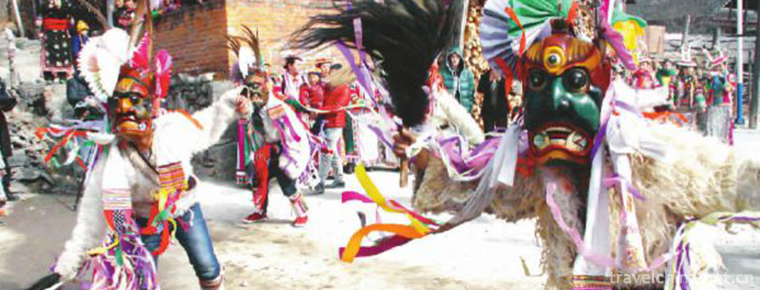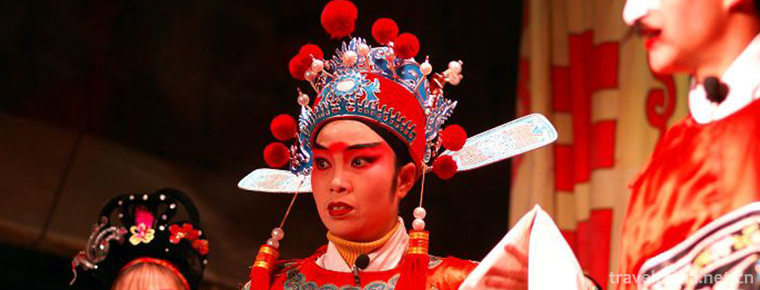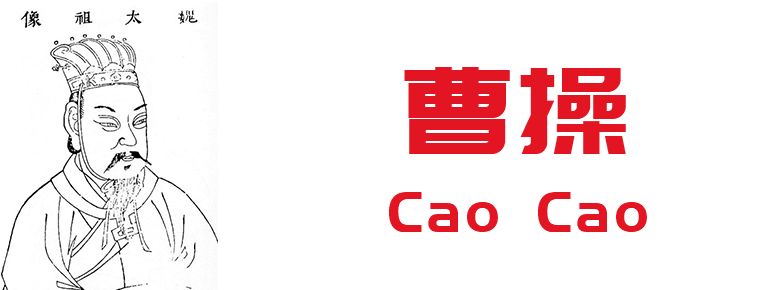Dang Kou ancient town
Dang Kou ancient town
Dangkou Ancient Town is located in the southeast of Xishan District, Wuxi City, Jiangsu Province. It is adjacent to the Yue noble tombs and Taibo Tombs in the west, and to Suzhou and Changshu in the east. It covers an area of 20.68 hectares. Dingshe, the ancient name, is said to be the hometown of Dinglan, the filial son of the Eastern Han Dynasty. It is named for its location in the mouth of the goose gill.
Dangkou Ancient Town, 25 kilometers from the city center of Wuxi, is located at the junction of Wuxi, Suzhou and Changshu. Wuxi City, one of the five key protected historical and cultural blocks (famous towns), was named as a famous historical and cultural town in China in 2010. It enjoys the reputation of "Little Suzhou" and "Yindangkou". It is a national AAAA-level tourist attraction.
geographical position
From ancient times, it has been a regional "water wharf" injecting the Bodu River West into the Ehu Lake to the Beijing-Hangzhou Grand Canal; Wangyu River, as a clear water channel, passes through the Ehu Lake, linking the Yangtze River to the north and Taihu Lake to the south; modern transportation is convenient, 12 kilometers from the Suofang International Airport in southern Jiangsu and 10 kilometers from the Wuxi Station of the Beijing-Shanghai Expressway; Huning Expressway, Xitai First-class Highway and Xizhang Expressway are close to Dangkou. Tourist attractions; Taicang Port and Zhangjiagang Deepwater Port are only 40 kilometers.
Bus: 712, 708 (Dangkou Guzhen Station) 721, 729, 732 (Xinqiao Station)
Honor
In 2008, it was designated as one of the five key protected historical and cultural blocks (famous towns) in Wuxi City. In 2010, it was rated as a famous historical and cultural town in China, and in 2014, it was listed as a national 4A scenic spot.
Practical information
Ticket information
Adult tickets are 80 yuan, including Hua Houfang's life story exhibition hall, Hua Junwu Cartoon Museum, Fahrenheit Yizhuang, Wang Xin's former residence, Huitong Hall, Qian Mu's former residence (Henry Watch Hall).
Minors aged 6-18, students and elderly people aged 60-69 are exempted from tickets with valid documents, while children under 1.4 meters and elderly people over 70 are exempted from tickets with valid documents.
Citizens in Wuxi, Jiangyin and Yixing are exempted from tickets by valid identity cards (such as identity cards, social security cards, residence cards, etc.), but tickets are required for internal attractions.
Wuxi Garden Card is free of tickets (including internal attractions).
Diet information
Ancient towns have food everywhere, walking oil and meat is the most famous, you can see shops selling it everywhere. Shuijin Douhua (No. 85 Cang Hebei Street), Jinjia pancakes (No. 77 Cang Hebei Street) and medicinal crispy snacks are very good. The authentic Wuxi flavor can be eaten in the small cage of Qinyuan (No. 37 Cang Henan Street). The popularity of crab-yellow small cage bag and fresh meat small cage is very high. If you pursue the environment, you can go to the old-fashioned famous stove in Washington (No. 112-1 Cangbei Street). When you are tired of walking, you can also sit down at a tea seat near the river and enjoy the scenery while drinking tea.
Accommodation information
Ancient town accommodation is more convenient, from hotels to high-end hotels.
Customs and taboos
Dangkou Ancient Town folk custom has distinct characteristics and unique personality of Jiangnan Watery Town. Its "four seasons and eight seasons" custom pays special attention to moral meaning and has a lively interest.
The Spring Festival is the longest lasting major festival activity in a year, and its customs are also the most exquisite. Preparations for general cleaning and dust dusting began in the middle and late December. The homonym of "ash" and "obscurity" is to clean up the festival and hope to get rid of the old bad luck and usher in a good omen of prosperity and prosperity in the New Year.
December 24 is the kitchen day. As the saying goes, "When a child is old, an old woman is old." Legend has it that God Kitchen is supposed to "serve God well", and people should eat vegetarian sacrifices to God Kitchen, vegetarian stuffed dumplings (commonly known as "thank Kitchen Dumplings"), dishes are also made of tofu, gluten, vegetarian chicken, louvers, yuba, black fungus, mushrooms and so on. It is very suitable for old ladies who believe in Buddhism and eat vegetarian food.
The steamed rice cake at the end of December is very exquisite. First, the ground glutinous rice powder is mixed with water, sugar and wet powder, steamed in a steaming cage, then taken out repeatedly and kneaded, and then made into various shapes of rice cake. "Steaming" takes the meaning of steaming directly; the homonym of "cake" and "high" implies the meaning of high festival of life. New Year's Cake is mostly gold and silver in color. It is flavored with yellow sugar and white sugar. Its shape is square, rectangular, and yuan-bao. It symbolizes gold and silver bricks, gold and silver bars, and gold and silver yuan-bao. We hope that the New Year will be auspicious and prosperous.
New Year's Eve family reunion for New Year's Eve dinner is the highlight of the New Year. There are many exquisite, rice to put soybeans, water chestnuts, soybean grains such as gold, symbolizing wealth; water chestnut color red round, and "Qi" homonym, symbolizing neat reunion, red fire, in addition to the implication of wealth, because the local metaphor is called "digging a big water chestnut". There must be fish in the dishes. The homonym of "fish" and "Yu" implies "more than one year in a year". On New Year's Eve, "two years in a row overnight, five years in two years". After dinner, we should put off firecrackers and stop going out, but we can't sleep, so we have to keep our age. Waiting for the arrival of the new year, we welcome the first year of the year to open the door to fireworks, wishing the New Year good luck.
The custom of Spring Festival is very particular. For breakfast, we have rice cake and round son. The round son is green and white. The rice cake is yellow and white. It is cut into small cubes, meaning happy and reunited. Children can receive New Year's money from their parents and elders, some hidden under their pillows while their children are sleeping, and some given to their elders during the Spring Festival. "Congratulations on making a fortune and everything goes well." On the first day of the year, adults should not swear at children, otherwise it will bring bad luck for a year; they should not dance knives and guns, or even use kitchen knives. They should cut everything in advance in order to achieve peace and peace throughout the year.
On the fifth day of the year, we should receive the "roadside Bodhisattva", that is, to welcome the God of Wealth. According to legend, during the Warring States Period, Fan Li, a doctor of Vietnam, became rich in business and was respected as the God of wealth. It is also said that in order to commemorate the Five Ways of He Wulu, the Anti-Japanese Righteous Person of the Ming Dynasty, he was called "Five Ways of God of Wealth". His family offered Bodhisattvas on the road. Cai Yunyou's poem says, "Five days for money, five days for money, one year for money." Watch out for other places to greet God early and rush to the road overnight. When offering sacrifices, firecrackers are not set off, which is called "making a fortune in silence".
The ninth day of the first year is the birthday of the earth, and the tenth day of the first year is the birthday of the earth. On these two days, every household has to eat dried fruits and fruit, and order fragrant offerings.
The Lantern Festival on the 15th day of the first lunar month is the busiest day in the New Year. It is the climax of New Year's activities to eat Lantern Festival, enjoy lanterns and go to see pearl lanterns in dew from early morning till late night. After the Lantern Festival, we are going to work. As the saying goes, "After the first half of the lunar month, open the cupboard door for you to see." It means that after the first half of the month, there is no food for guests at home.
The custom of sweeping tombs and sacrificing ancestors on Qingming Festival is somewhat special. If there is a distinction between the old and the new, the Tomb-sweeping sacrifice must be held on or after the day of the Qingming Dynasty, and the Tomb-sweeping sacrifice must be performed before the Qingming Dynasty. It is necessary to add soil to the grave. Two pieces of conical soil covered with grass must be dug and placed on the top of the grave, so that the two sides of the grass can be joined together. There is also a rule in the custom of going to the grave that it is strictly forbidden to destroy the grass and trees on the grave, which plays an important role in protecting the ecology.
It is another local custom to visit Hongshan to sacrifice the tomb of Taibo on the Qingming Festival. On this day, every household has to make green and white dumplings. Green dumplings are made of wheat leaf juice, lime water and rice flour. White dumplings are the essence of rice flour. There is also a custom in the Qingming Festival that wheat cakes or big cakes are hung on beams with wickers and eaten in the early summer to prevent "hot summer".
On the Fifth Duanyang Festival in early May, dragon boat racing and rowing in Ehu Lake are the customs of thousands of years. In ancient times, people in Wu area "broke their hair tattoos" from Bilong Zi. Therefore, Mr. Wen Yiduo analyzed in the Dragon Boat Examination that the fifth day of May was a totem sacrifice to ancestors held by the tribes of the "dragon" in the ancient Wuyue area.
The seventh day of July is called "Qiqiao Festival". "Changzhou Prefecture annals" records: "Women collect impatients to dye nails, set melons and fruits to worship Vega, in the water basin exposed to the moon, the shadow as a begging experience; and scholar-bureaucrats must pay for the skillful fruit, the fruit type is different, about face-to-face characters, flowers and birds amorphous."
The half of July is called "Zhongyuan". It is a day to recommend the dead and celebrate "Ghost Day". Local chronicles record that the "Yulan Club is held in every temple" on this day. Generally speaking, the new death should be on the day of the first day, and more than a year ago, 15 years ago. So far, "after July and a half" is still popular in this area, which follows this custom.
Burning Jiusixiang on July 30 is a unique custom in some areas of Suxi. Legend has it that when Zhang Shicheng occupied Suzhou and Wuxi at the end of the Yuan Dynasty, he did some good deeds for the people and touched the people of Li. Therefore, on July 30, Zhang Shicheng's birthday, burned incense in the cracks of bricks on the ground. Because Zhang Shicheng's nickname is Jiushi, it is called Jiusxiang. Eggplant cakes are also eaten on the old day. Eggplant cakes are cakes made by cutting eggplants into silk and baking them in flour.
At the end of November, there is a custom of "fish in ponds". Fishermen will catch the first net of fish to their relatives and friends, eat a feast mainly fish, to celebrate the harvest.










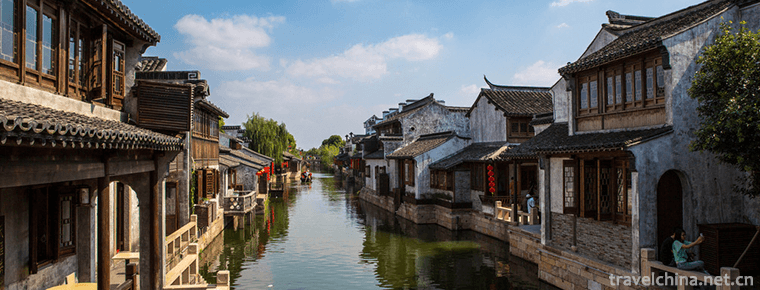
-
Sanhe ancient town Scenic Area
Sanhe Ancient Town Scenic Area is located in Feixi County, Hefei City, on the shore of Chaohu Lake, adjacent to Lujiang County and Shucheng County.
Views: 143 Time 2018-12-08 -
Yilong Water Custom Park
Yilong Water Custom Park was built in 1996, covering an area of 100 hectares. It was solely operated by individuals and formally opened in June 1997..
Views: 359 Time 2018-12-22 -
Yuanyi Shuangfeng Lake International Tourist Resort
Yuanyi Shuangfeng Lake International Tourist Resort in Anhui Province is a high-level tourist resort integrating Golf and leisure. Located in the beautiful scenery, with a total area of more than 2000.
Views: 127 Time 2018-12-23 -
Production Techniques of Buyi Medical Herbs for Benefiting Liver
Guiding County, Guizhou Province, is a subtropical monsoon rheumatic fever climate with distinct seasons, rich heat, long frost-free period, abundant rainfall and complex and.
Views: 317 Time 2019-04-04 -
Bow and Arrow Making Skills
Juyuan bow and arrow making technology, the traditional handicraft of Chaoyang District, Beijing, is one of the national intangible cultural heritage..
Views: 201 Time 2019-05-01 -
Jumping Cao Gai
Caogai jumping is prevalent in Baima Tibetan area of Pingwu and Nanping counties. It is held on the sixth day of the first month of the lunar calendar every year. Cao Gai is a Baima Tibetan phonetic t.
Views: 101 Time 2019-06-21 -
Ming opera style
On May 20, 2006, Yiyang Opera was approved by the State Council of the People's Republic of China to be listed in the first batch of national intangible cultural heritage, numbered IV-5..
Views: 164 Time 2019-07-13 -
Cao Cao
Wei Wu Di Cao Cao (155 years - 220 March 15th), the name is Geely, the word Meng De, nicknamed hide. Prefectural governor of Yuzhou Qiao (today) Anhui Bozhou Person . Eastern Han Dynasty Outstanding i.
Views: 378 Time 2019-09-07 -
Four famous Chinese embroidery
Suzhou embroidery is famous for its fine stitches, elegant colors and fine embroidery. It has the characteristics of flat, light, even, harmonious, fine and dense. The theme is mainly about small animals. Such as "cat play", "wind through flowers",.
Views: 316 Time 2020-12-12 -
Leshans first industry
In 2019, the sown area of crops in Leshan City is 344100 hectares, an increase of 3318 hectares over the previous year. Grain planting area was 217800 hectares, an increase of 122 hectares over the previous year; oil planting area was 46500 hectares.
Views: 319 Time 2020-12-17 -
guangan medical and health work
As of 2019, there are 3443 health institutions in Guang'an City. Among them, there are 79 hospitals, 174 health centers, 24 community health service centers (stations), 379 clinics, clinics and clinics, 2 blood collection and supply institutions, 7 matern.
Views: 326 Time 2020-12-19
